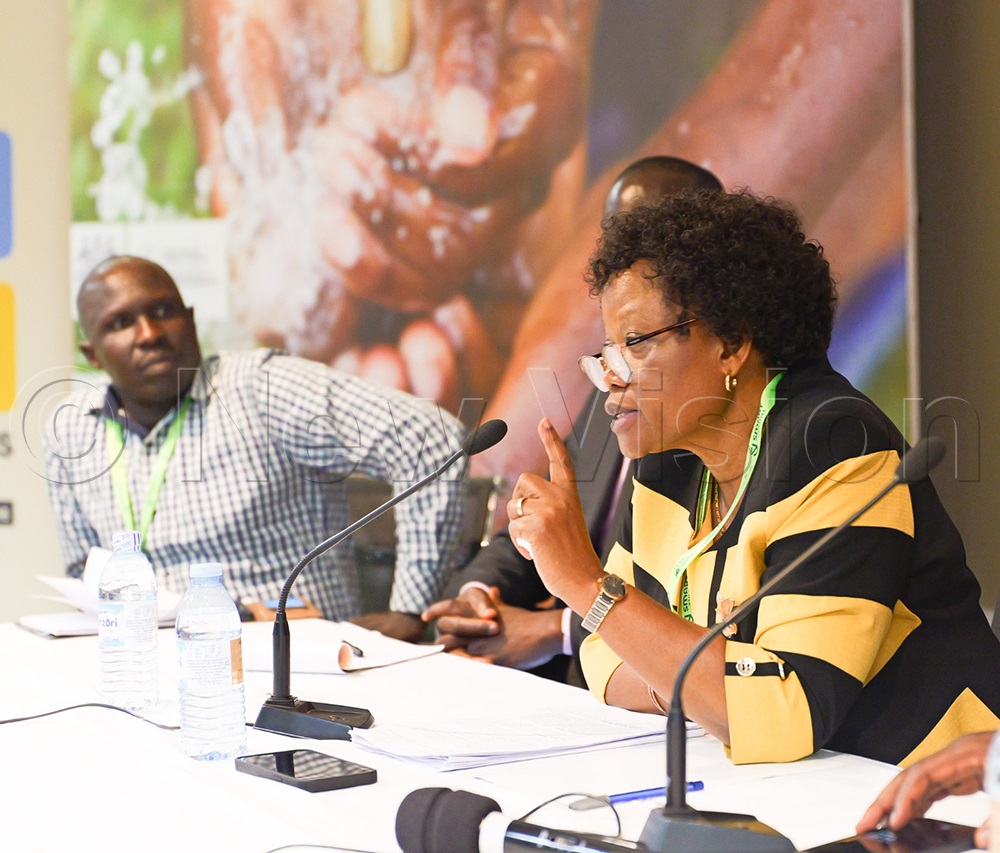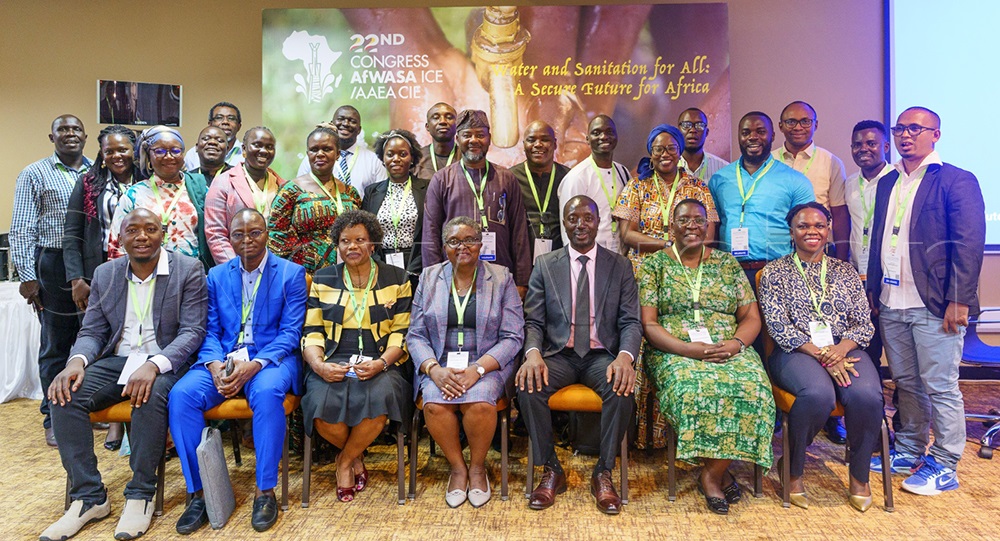'Build climate change-resilient WASH facilities'
While promoting climate resilient WASH facilities, Magala also called for the integration of indigenous knowledge on climate change while designing these facilities.
Joyce Mpalanyi Magala, WaterAid Country Driector Uganda. (Credit: Maria Wamala)
By NewVision Reporter
Journalists @NewVision
___________________ Commissioner Margret Mwebesa from the Climate Change Unit in the Ministry of Water and Environment. (Credit: Maria Wamala)
Promoters of water sanitation and hygiene (WASH) have called for the construction and design of WASH facilities that can withstand the effects of the changing weather.
This will involve the protection of water sources, strong palatines and how the water flows from one place to another among others.
The call by the Water Aid Uganda country director, Joyce Mpalanyi Magala, on February 18, 2025, was made while she officiated a side event on Strengthening WASH adaptive capacities during the 22nd African Water and Sanitation Association International Congress and Exhibition. The congress is taking place at the Commonwealth Resort Munyonyo in Kampala city.
“For example, if it is a water source, where does it come from, and how do you protect it from heavy rains, floods, and storms to make sure that what you have put in place stays like the pipes will not be washed away, the water sources remain protected and other structures in the WASH category,” Magala said.
She added that currently, there is a challenge of the quality of materials used in the construction of WASH facilities and the expertise needed.
“You find that the cement used may not be of high quality, the designs may not be appropriate like how water flows out of the facilities such that even if the rains come, heavy storms occur, these facilities are not affected,” Magala said.
While promoting climate resilient WASH facilities, Magala also called for the integration of indigenous knowledge on climate change while designing these facilities.
“You cannot come out and promote any innovation of technology without involving the communities who have indigenous knowledge in interpreting weather changes. So, we have to work with the communities for the success of these innovations,” she said.
Speeding up community adoption
Officiating at the event, Margret Mwebesa Athieno, the commissioner climate change department in the water ministry, said including traditional ways of protecting water resources, and hygiene practices will speed up community adoption.
“When you have a system and people feel they are part of it, that particular system is likely to survive, so adaptation in the local context is very important. We need to ensure that we promote those systems or materials that are friendly to the community, Mwebesa said.
She added that some communities still use clay pots for strong drinking water, and cow dung to construct latrines and we should create relationships on how best can such indigenous technologies be harnessed.
“Sometimes communities don’t want technologies that are out of context. They would rather be associated with technologies they are aware of. So, let us build these indigenous knowledge linkages while promoting WASH schemes,” she added.
Participants who attended the WASH side event alongside the 22nd African Water and Sanitation International Congress taking place at Speke resort Munyonyo. (Credit: Maria Wamala)
In terms of the growing population which according to the recent census is nearing 50 million Ugandans, Mwebase advised WaterAid to consider this population growth visa vis the current coverage of wash facilities in the country.
The side event was conducted in line with Track 3: of the congress, which is Sanitation Management. Under this track, participants in the conference are supported to discuss ways of improving, Sewered and non-sewered services, Solid waste management, Sanitation safety planning, Wastewater treatment technologies and Faecal sludge management. Resource recovery and circular economy and Innovative sanitation tools, systems and practices.